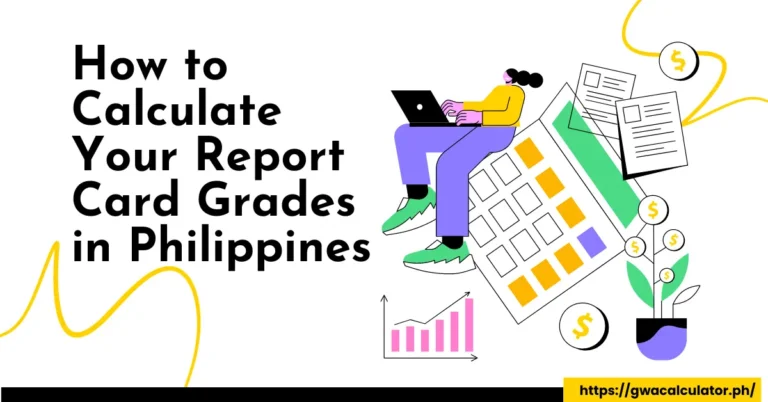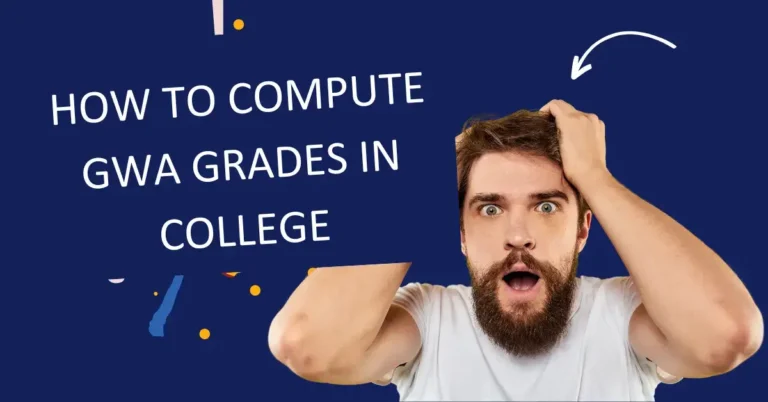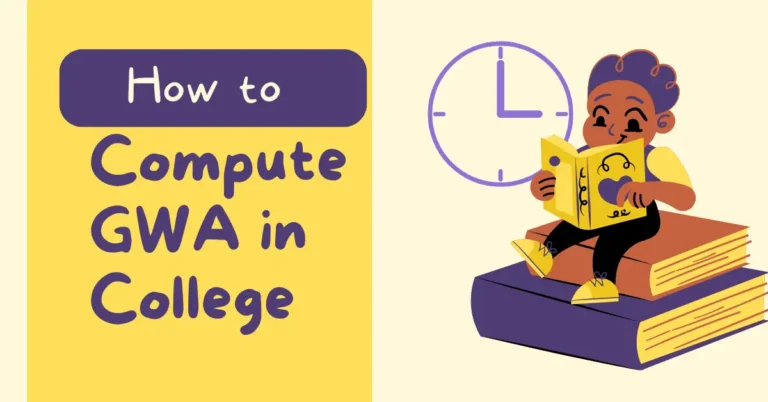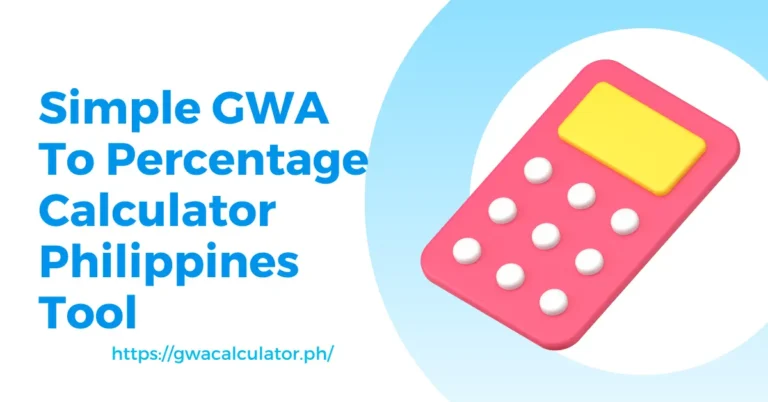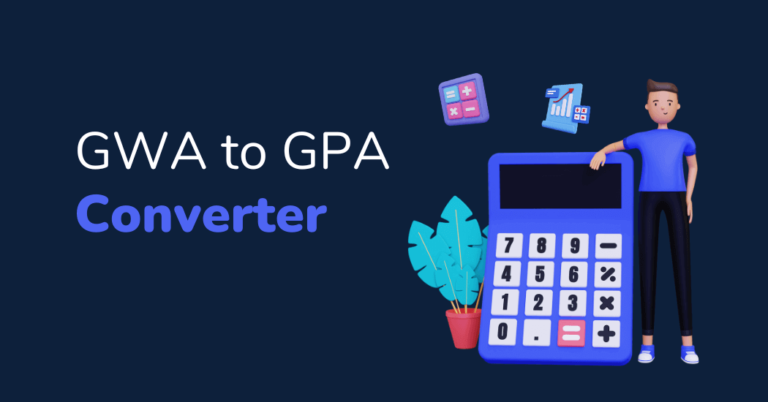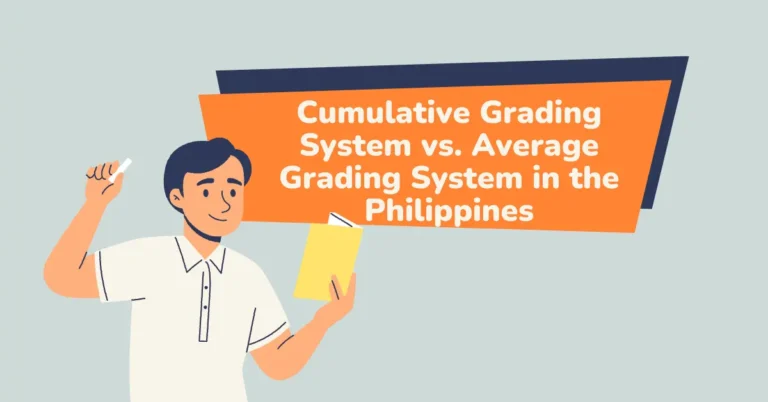Do GWA Affect Students Preference of Use of Social Media?
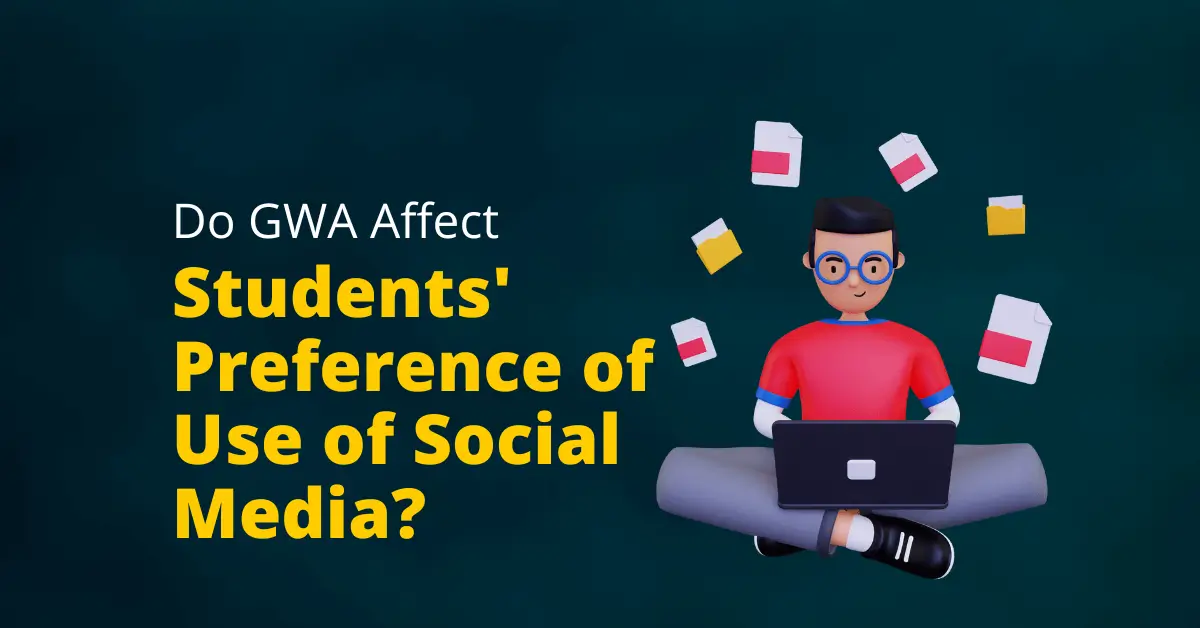
In today’s digital age, social media plays a significant role in the lives of students. From connecting with friends to accessing educational resources, social media platforms have become an integral part of their daily routine. However, there is a growing concern about the impact of academic performance, particularly GWA (Grades with Average), on students’ preferences and usage of social media. This article delves into the relationship between GWA and students’ social media behavior, providing valuable insights and shedding light on this intriguing topic.
The GWA Calculator is a valuable tool that aids students in determining their academic performance by calculating their Grade with Average. As social media increasingly influences students’ lives, understanding the correlation between GWA and their social media behavior becomes vital to address potential impacts on academic priorities and digital habits.
1. GWA’s Influence on Social Media Usage
As students progress through their academic journey, the pressure of maintaining a good GWA intensifies. Consequently, this pressure may influence how students interact with social media platforms.
The availability of smartphones and constant internet connectivity has made it convenient for students to access social media at any time. The question arises, does GWA affect their preference of use of social media? Some students may be motivated by their academic success to limit their social media engagement as a form of self-discipline, while others may resort to social media as a coping mechanism or as a way to unwind after studying.
2. The Role of Social Media in Academics
While social media is often perceived as a distraction, it can also be a valuable tool for academic purposes. Students can join educational groups, collaborate with peers, and access study resources on social media platforms. The interplay between GWA and social media usage is not limited to mere leisure activities; it extends to academic engagement as well.
3. Pros and Cons of Social Media Use
It’s essential to analyze both the positive and negative aspects of social media usage concerning students’ academic performance.
Pros:
- Access to educational content and resources.
- Facilitation of collaboration and group discussions.
- Opportunities for networking and career development.
Cons:
- Potential distractions leading to reduced study time.
- Comparison and peer pressure affecting students’ self-esteem.
- Exposure to cyberbullying and online harassment.
4. GWA and Time Management
Time management is crucial for academic success. The correlation between GWA and students’ preference of use of social media may be influenced by their ability to manage their time effectively. Students with a higher GWA may be more disciplined in managing their social media usage, dedicating sufficient time to their studies, and balancing their social media activities.
5. Impact of Social Media Addiction on GWA
Social media addiction can significantly impact students’ academic performance. Excessive use of social media can lead to procrastination, reduced focus, and decreased productivity. This, in turn, can negatively affect GWA and overall academic achievement.
6. The Role of Social Media in Mental Health
Mental health is a critical factor in students’ overall well-being and academic performance. Social media can both positively and negatively influence mental health. On one hand, it provides a platform for students to express themselves and seek support. On the other hand, constant social media comparisons and the fear of missing out (FOMO) can lead to anxiety and stress, affecting GWA.
7. Strategies for Maintaining a Healthy Balance
Maintaining a healthy balance between social media usage and academic responsibilities is key for students’ well-being and GWA. Here are some effective strategies:
- Setting specific time limits for social media use.
- Using social media as a reward after completing study goals.
- Engaging in offline activities and hobbies to reduce screen time.
8. Influence of Social Media on Peer Relationships
Social media profoundly impacts peer relationships among students. GWA can influence how students engage with their peers on social media platforms. High-achieving students may form academic-oriented groups, while others may use social media to seek emotional support and camaraderie.
9. The Connection Between GWA and Online Learning
The pandemic accelerated the adoption of online learning. GWA can influence students’ adaptation to this mode of education. High GWA students might embrace online learning as an opportunity to excel, while others may struggle with the lack of face-to-face interaction.
10. Student Motivation and GWA
GWA can be a significant factor in motivating students to achieve academic success. It can serve as a driving force to limit social media use and focus on studies. Conversely, students with lower GWA may turn to social media as a means of escape from academic pressure.
11. Impact of Social Media Platforms on GWA
Different social media platforms cater to diverse audiences and content types. The choice of platform can affect the relationship between GWA and social media usage. For instance, students on professional networking platforms may prioritize academic and career-related content.
12. Social Media and Educational Trends
Educational trends often emerge and spread through social media. GWA may influence the likelihood of students adopting and engaging with these trends, affecting their academic performance.
13. GWA’s Influence on Study Groups
Study groups play a vital role in academic success. GWA may influence students’ participation in study groups, affecting their access to collaborative learning opportunities.
14. Social Media and Extracurricular Activities
Extracurricular activities contribute to a well-rounded education. GWA can impact students’ involvement in social media-based extracurriculars, such as online competitions and skill-building communities.
15. The Future of Social Media and GWA
As technology and social media continue to evolve, the relationship between GWA and social media usage will likely undergo changes. Understanding these trends is crucial for educators and policymakers to support students effectively.
FAQs
Not necessarily. The impact of GWA on social media usage varies from student to student. Some individuals may use social media as a motivational tool, while others may find it distracting.
Setting specific time limits, using social media as a reward, and engaging in offline activities can help maintain a healthy balance.
Yes, excessive social media use can lead to procrastination and reduced productivity, which can negatively impact GWA.
Educators can incorporate digital literacy programs and promote responsible social media use to help students navigate the online world effectively.
Not necessarily. While some high-achieving students may limit their social media use, others may use it for academic networking and collaboration.
Yes, different platforms cater to diverse content types, which can impact students’ academic engagement and preferences.
Conclusion
The relationship between GWA and students’ preference of use of social media is a complex and multi-faceted topic. It involves various factors, including time management, mental health, and motivation. Striking a balance between social media usage and academic responsibilities is crucial for students’ well-being and academic success. As social media and technology continue to evolve, educators and policymakers must adapt to these changes to support students effectively.
Contents
- 1. GWA’s Influence on Social Media Usage
- 2. The Role of Social Media in Academics
- 3. Pros and Cons of Social Media Use
- 4. GWA and Time Management
- 5. Impact of Social Media Addiction on GWA
- 6. The Role of Social Media in Mental Health
- 7. Strategies for Maintaining a Healthy Balance
- 8. Influence of Social Media on Peer Relationships
- 9. The Connection Between GWA and Online Learning
- 10. Student Motivation and GWA
- 11. Impact of Social Media Platforms on GWA
- 12. Social Media and Educational Trends
- 13. GWA’s Influence on Study Groups
- 14. Social Media and Extracurricular Activities
- 15. The Future of Social Media and GWA
- FAQs
- Does GWA always negatively affect students’ social media preferences?
- How can students strike a balance between social media and academics?
- Can social media addiction lead to lower GWA?
- How can educators address the negative effects of social media on GWA?
- Do students with high GWA always avoid social media?
- Does the choice of social media platform influence GWA?
- Conclusion

